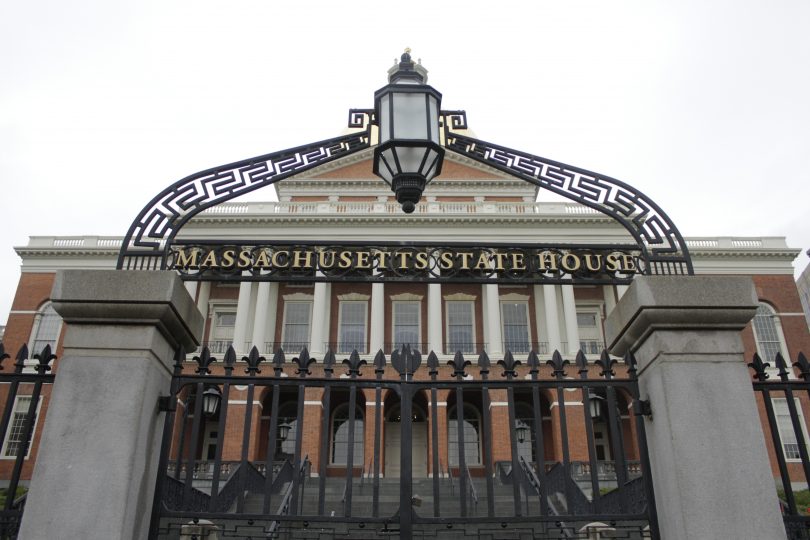By Stella Lorence
Boston University Statehouse Program
BOSTON — Election reforms designed to make voting safer and easier during the pandemic are one step closer to permanence after the Massachusetts Senate passed its election bill.
“This is the moment in which we must go the full distance for our voters,” said Sen. Rebecca Rausch, D-Needham. “Our democracy is at a tipping point.”
The Senate bill, which was approved last week, covers expanded mail-in voting, permanent early voting periods and same-day registration, along with provisions to help disabled voters access accommodations for voting.
Under the new bill, Secretary of State William Galvin would mail every registered voter a mail-in ballot application prior to every election. Every general election would have a mandated two week early-voting period.
Just over 40% of Attleboro voters voted by mail in 2020, which is comparable to the statewide percentage of voters, according to data from the Secretary of State’s office. Just under a quarter of total Attleboro votes were cast early in 2020.
“This pandemic has shown us that we are not bound to these outdated methods” Rausch said.
George Spatcher, chairman of the Attleboro Board of Election Commissioners, said there were no major issues with either the 2020 presidential election or the September preliminary election in Attleboro, and that the board will readily follow all new procedures of a new voting law.
“We know that when the time comes for it to be implemented, the state’s election office will have it worked out,” Spatcher said.
Rausch agreed that the clerks’ efforts in the 2020 election were “Herculean,” but said putting in such effort for every election is not sustainable, and that the bill will help make elections run smoother.
Another provision in the Senate bill goes beyond the pandemic-era changes and allows same-day registration.
“We’re behind on same-day registration,” Rausch told The Sun Chronicle. “Nearly half the country does that.”
Spatcher said he’s not confident the new system will boost voter turnout, as some of the bill’s proponents believe.
“It’s very frustrating to get people to exercise their rights,” Spatcher said. He called the low turnout in the September preliminary “disgusting” — Attleboro had just over 10% turnout.
Rausch said she thinks the bill will have some impact on turnout, especially because of an amendment she proposed that provides for voter outreach in a range of languages, and specifies digital and social media campaigns.
“The way we increase turnout is not only making voting easier, which we’ve done, but also by telling voters what we’ve done,” Rausch said.
Democratic senators pointed out the recent bills in other Republican-led states that tighten voting restrictions. Rausch joined in protest with the Texas Democrats who fled their state in an attempt to derail a stringent voting bill.
“We bore witness to a violent insurrection that shed blood in the capital of our nation after a free and fair election,” Rausch said. “When voting rights are so significantly under attack in other parts of our country, we in Massachusetts have a responsibility to lead.”
A failed Republican-led amendment would have replaced same-day registration with an extended deadline to register prior to elections, citing a high burden on election officials, and would have expanded the random election audit system to all elections in the state.
Sen. Ryan Fattman, R-Webster, pointed out that while 2020 had the highest election turnout in the state’s history, it also had the highest number of rejected ballots.
Statewide, about 20,000 ballots were rejected in the 2020 general election, making up about 0.8% of all ballots cast, according to data from the Secretary of State’s office. In Attleboro, 0.66% were rejected.
Spatcher said there were no problems with the registration system or general election integrity in either the 2020 election or the September preliminary.
“Registration as it is now is excellent, and I would say almost fool-proof,” Spatcher said.
Rausch also said election integrity is high in the state.
“Voter fraud is not a thing,” Rausch said. “It was not a thing in Massachusetts in 2020. It was not a thing anywhere in the country. It was a right-wing talking point.”
Several amendments from Democratic senators failed, including a couple that would make it easier for incarcerated people to get added to voter rolls. In Massachusetts, only those convicted of a felony lose the right to vote.
Sen. Cynthia Creem, D-Newton, who filed the original Senate bill, said between 7,000 and 9,000 incarcerated residents are held on pre-trail or misdemeanor convictions.
“These individuals maintain their voting rights, but face barriers to voting, including not being aware they have the right while they’re being held in prison,” Creem said.
Rausch proposed 15 amendments, four of which were adopted, including one that expands the provisions of the base bill to municipal elections as well as state-wide elections.
“The bill is really strong, and I’m really proud to have played a role in making the base bill,” Rausch said.
The House passed its own version of election law reforms earlier this year, a measure that did not include same-day voting. A House-Senate conference committee will iron out the differences.
This story originally appeared in the Attleboro Sun-Chronicle.





